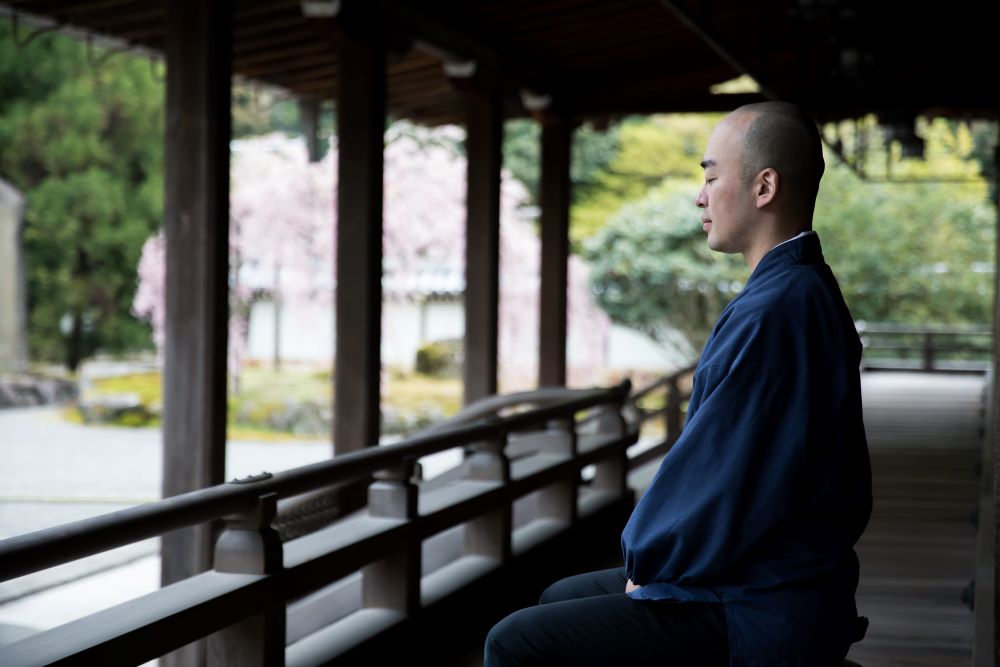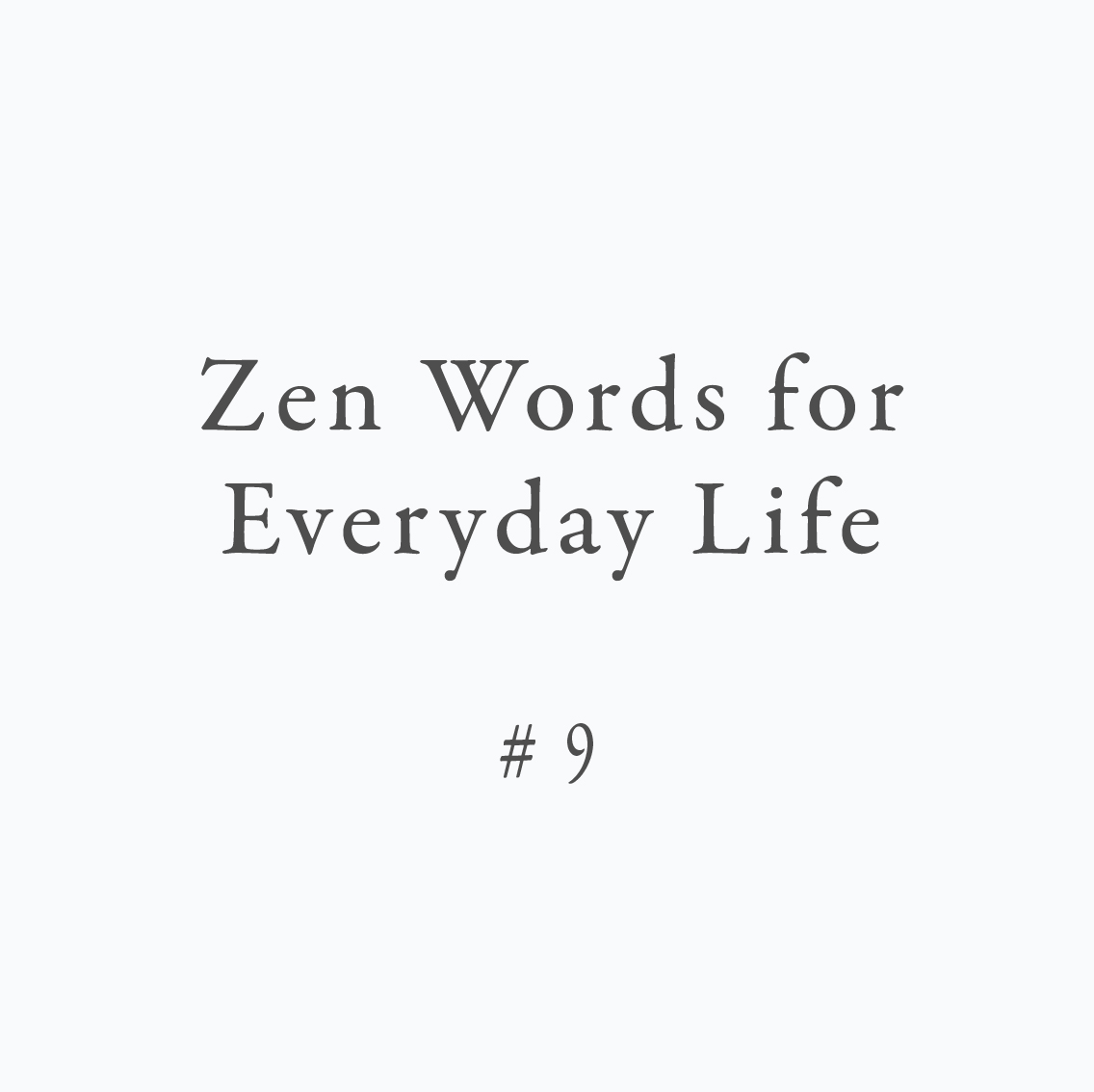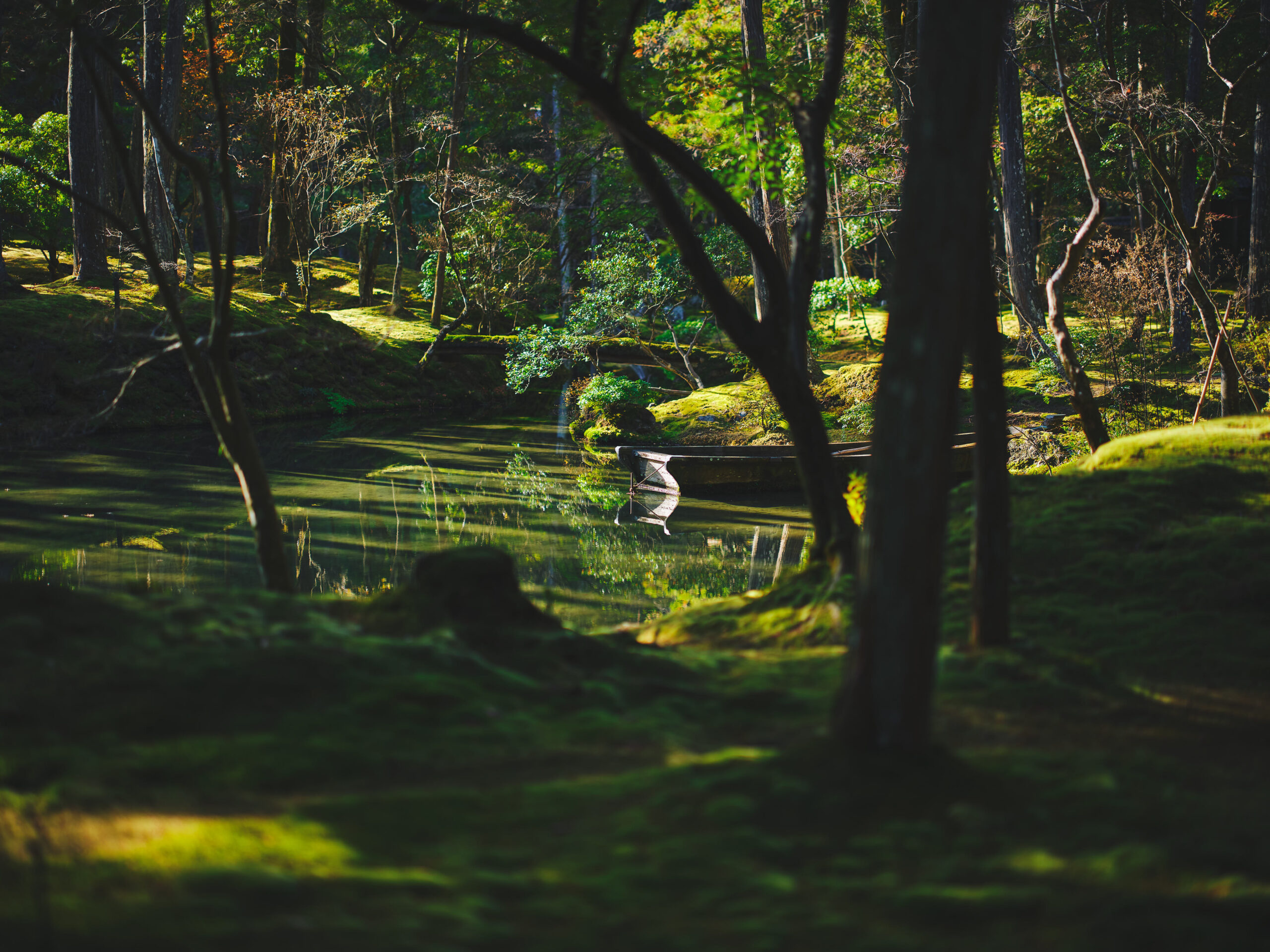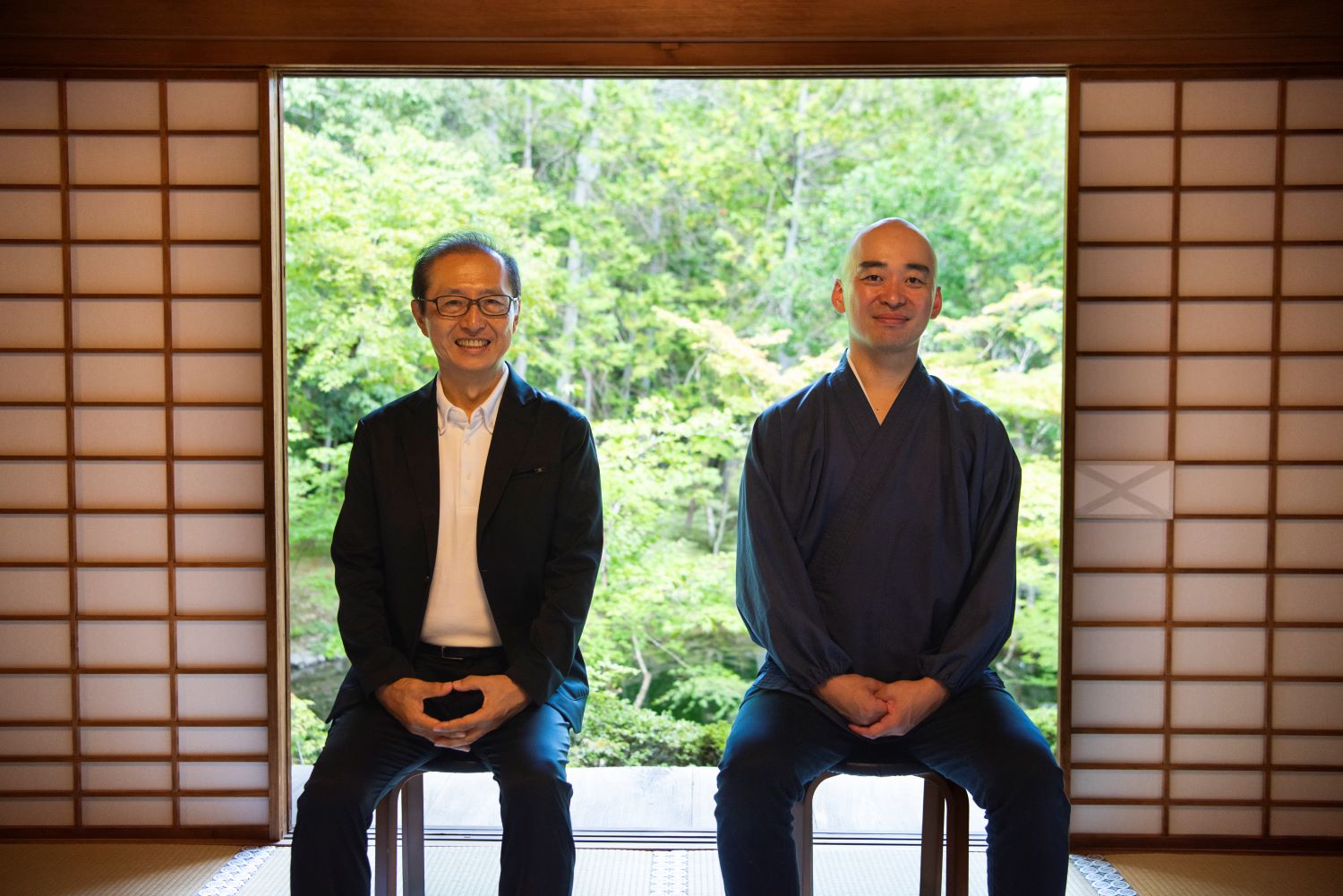2025.9.15
Zen Words for Everyday Life Vol. 10
“Mukudoku”
The first time that Bodhidharma met Emperor Wu, the latter said, “I have built temples and ordained monks. What merit have I earned by my acts?”
Bodhidharma replied, “None whatsoever.”
Case 1 in the Hekiganroku (The Blue Cliff Record)
The Zen expression無功徳 mukudoku, meaning “no merit,” has its origins in the passage above, taken from The Blue Cliff Record, which we encountered in previous entries of “Zen Words for Everyday Life.” The exchange took place between Emperor Wu of the Liang Dynasty and the priest Bodhidharma during China's Period of the Northern and Southern Dynasties (439–589). So deep was Emperor Wu's Buddhist faith that he earned himself the moniker Busshin Tenshi (the Emperor of the Buddha Heart). Upon ascending the imperial throne, he devoted himself to ensuring the prosperity of Buddhism, building numerous temples and leading many people to become monks.
Bodhidharma, the 28th Patriarch of Buddhism, was the founder of Zen Buddhism. As such, he appears on the red seal of Saihoji. Nevertheless, he is an approachable and familiar figure to many people in Japan, and the traditional children's toy daruma otoshi is also based on him.
Emperor Wu invited Bodhidharma to his palace and said, “I have built temples and prayed for many people to take the cloth. What merit (kudoku) will I have earned by these actions?”
Bodhidharma simply responded “Mukudoku,” meaning “No merit at all.”
Emperor Wu accumulated a great many meritorious deeds, and his actions may indeed have been commendable. However, Bodhidharma pointed out that although actions may appear to be good, they cannot truly be good if one expects a reward for them.
People have a tendency to expect their actions to have clear and discernible results or impacts. As indicated by the advent of expressions such as “price-performance ratio” and “time performance,” recent years have seen an increasing trend toward emphasizing the efficiency and efficacy of actions over and above the nature of the actions themselves. However, the compassion of the Buddha does not manifest itself in calculated actions carried out in expectation of a reward, but rather in actions that are pure expressions of humanity.
To put it in more concrete terms, when we do something good, we tend to expect that someone will notice, acknowledge, and reward us. For example, after performing some good deed, people may find themselves asking, “Why does nobody understand the effort I put in?” or “If I do something good but get nothing good in return, then am I just losing out?”
But can acts of kindness carried out with the expectation of a reward truly be called “acts of kindness”? True kindness is when you do something for someone else's sake, not your own, and rather than seeking a reward, you are genuinely able to take joy in the other person's happiness.
To pursue the pure expression of humanity, apart from utilitarian or calculating behavior, is also the heart of the Buddha. It is difficult to develop such a mindset overnight, but it is important to know that there is a world where this kind of thing happens. If you ever meet someone who lives out these teachings, you will be inspired to return the goodness with an act of kindness for someone else. You will create a chain of good deeds, and that is exactly what the world needs right now.
Saihoji FUJITA Ryuko

Up next
Most read

Your Heart
“The Concept of Muda”





